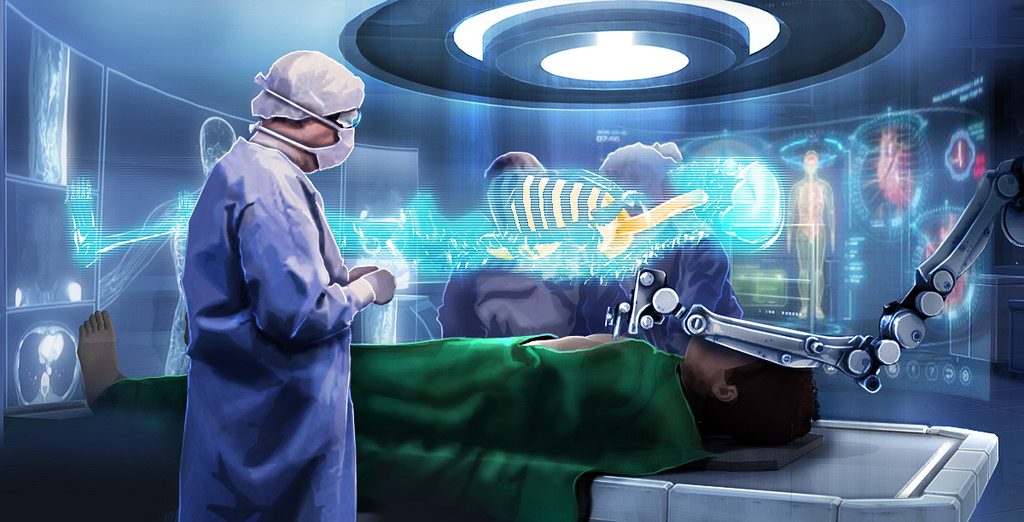Health
Everything You Need to Know About Nursing and Becoming a Nurse

Nursing is an excellent career because you can start off your working life as a nurse or transfer your career into nursing at any time. It is challenging, but there is enough role variation between the nursing types that you can find the right pace and the right role for you, almost guaranteed.
Not everyone can make it as a nurse, of course, but if you have a passion for helping people and an interest in healthcare or the sciences, then nursing can be the perfect route for you. Unlike with doctors, you can get started as a nurse very quickly and then study while you work.
This makes nursing far more accessible than becoming a physician or a doctor and nursing itself has come such a long way from its early days. For example, though physicians and doctors themselves have existed as a role in one way or another for the entirety of human history, nurses, as we know them today, really only began as a profession in the mid-1800s, and even then, nursing education was still almost a hundred years away.
The first university-led nursing degree started in 1909, but it wasn’t until 1923 that the Goldman Report was published, which espoused the benefit of having more nurses university trained.
This is what led to the Associate’s Degree in Nursing, which, though it still exists today, is being widely phased out for the Bachelor of Science in Nursing (BSN). Even though many reports noted the benefits of BSN-trained nurses, it wasn’t until 2010 that the industry began to shift.
Nurse practitioner and master’s programs also only began from the mid-sixties to the mid-seventies, yet they have become one of the most integral roles in society. There is a large physician shortage, and it is the Family-Nurse Practitioner that is filling that shortage.
MSN-prepared nurses are becoming increasingly visible and important in healthcare. With this importance comes very high wages and a great range of workplace options both within healthcare settings and in unique settings like movie sets or on research expeditions.
Nursing as a Career in 2021
Nursing is a big commitment; to become an APRN and open up the largest number of opportunities, you need to achieve a BSN and an MSN at minimum. You can, of course, go further and either earn a post-master’s certificate to specialize as a new type of APRN or further your career with a Doctorate degree.
There is an increasing push as well for greater levels of education. Currently, there is a goal of reaching 80% RNs holding a BSN degree instead of the associate degree in Nursing (ADN), and many states also have a ten-year law, where nursing with an ADN needs to have achieved the BSN within a certain timeframe.
Overall, this means that your career as a nurse is going to require a significant amount of study. However, you don’t need to take time off from work to do this, as many top degree options today are available online, with few exceptions. These exceptions include your clinical placement and occasionally a residency period designed to allow you to physically meet your peers and educators.
The good news is that nursing is on the up.
One of the most important factors to keep in mind is that nursing is currently facing a shortage, and retiring nursing poses a huge threat in the future. Current estimates assume that, around the world, there will be a shortage by 2030 of around 6 million nurses. A huge bulk of this shortage will be due to nurses retiring by the end of the decade.
Though this doesn’t bode well for society, it does mean that you are extremely likely to find work within the first few months of graduation and upon completing your licensing exam. It also means greater investment and opportunities for new nurses than ever before.
To help you understand the current nursing shortage, know that there are typically only 12 nurses per 1000 people on average in the United States. At best, for instance, in states like Wyoming, there are only 19.86 nurses on average per 1000 people.
Even the biggest and most well-off states like California are facing nursing shortages.
Shortages typically mean higher wages and greater investment and push for more nurses and higher nursing education. This is a great environment to be in when it comes to building your career as a nurse, as not only does it make it more favorable for your career, but it is also one of the best ways that you can work to make a significant difference for the quality of life for all Americans – or, alternatively citizens of the country where you are currently residing.
Nursing isn’t all about the shortages, either. Family Nurse Practitioners, for example, are one of the best job roles in the world. FNPs are in the top 4 best jobs in healthcare and in the top 5 best jobs overall. They work to offset the physician shortage (expected to reach as high between 55,00 to 139,000 by 2030), can often manage their own clinic, and generally enjoy both increased privileges and better work/life balance.
Understanding the state of the nursing career is the best place to get started, as having a realistic understanding of what you are getting into and what will be involved is the best way to power through and manage your expectations.
Becoming an APRN is not a race; it’s a marathon, and there are a lot of different routes to get there.
The Nursing Career Paths
You can jump right into nursing with a Bachelor of Science in Nursing, or you can work your way up with certificates that allow you to work in healthcare environments and then start investing in further education.
Indirect Nursing Career Path
You don’t need to earn a BSN before starting your nursing career. However, this is the best option if you currently don’t have a job and need to start earning money, as the first step as a Certified Nursing Assistant only requires a few weeks of training, and then you can get started as a CNA.
Certified Nursing Assistant
Certified Nursing Assistants provide a lot of holistic and supportive care and work underneath Registered Nurses. CNAs are found in hospitals and in care homes. They change out bedpans, give sponge baths, and work to keep patients comfortable and dignified. Though it may seem like the work is grueling, the work you will be doing as a CNA will directly impact patients’ quality of life.
The CNA program only takes a few weeks to complete, and once you pass the state exam, you will start applying to roles.
Licensed Nurse Practitioner
The Licensed Nurse Practitioner is one step down from Registered Nurses. Becoming an LNP takes around six months, after which you will also need to pass the state exam. Licensed Nurse Practitioners have many more advanced roles, but once again, the work is primarily holistic, working to keep patients comfortable, clean, and safe. You will work underneath RNs and also provide a lot of supportive work.
Technically you don’t need to become an LNP to become an RN. Instead, you can study for your BSN degree while working as a CNA, and after you graduate and pass the state exam, you can skip the LNP role entirely.
The reason why you would want to become an LNP is for the higher wages, and also the experience. This option is particularly useful if you don’t have the time or a financial barrier to earning your BSN.
Registered Nurse
There are still two ways to become an RN. The first is with a BSN. This option is the best one, as the Associate’s Degree in Nursing is being phased out, and you cannot progress to an MSN with an ADN.
Of course, there are still instances where you may prefer to earn the ADN. For example, it only takes two years to earn the Associate’s degree instead of four. By earning your ADN first, you can then become an RN, earn a higher wage, and then continue with an accelerated BSN degree (available to ADN-holders).
Direct Nursing Career Path
If you currently already have a job or at least have the security to earn a degree without working alongside your education, then you can earn a BSN right from the bat. This degree will include clinical placements, and there are many designed for non-nurses. This means that there is a direct path to becoming an RN. Overall, it will be faster, as you skip several different levels of nursing while simultaneously preparing for your MSN and furthering your nursing career.
Advancing Your Nursing Career: The MSN
Though there are a few different routes, the actual process of becoming an RN is straightforward. Where choice comes back into play is with your MSN. There are multiple different types of MSN degrees, and each will help you specialize in a specific area of medicine.
The Types of APRN
There are four general types of APRN roles, but even within these types, there are numerous sub-types. A nurse practitioner, for example, can socialize with a variety of different patients. NPs can specialize in family practice, women’s health, mental health, pediatrics, and more. The same applies to Clinical Nurse Specialists, who often specialize in a specific area of medicine like oncology.
The four main types of APRN are:
- Nurse Practitioners
- Clinical Nurse Specialists
- Nurse Midwives
- Nurse Anesthetists
Choosing the Right Degree
It can be difficult to decide which degree, and therefore which career path, is right for you. Taking time after earning your BSN to explore the types of medicine and which patients you are most passionate about treating is the best way forward.
Do take the initiative. See if you can work in different departments you are interested in and invest in medical journals or nursing journals to help you explore your interests and help you find your passion.
It isn’t the end of the world if you “choose wrong”. In fact, there is no such thing because even if you don’t choose the perfect career path, you can always certify in a new direction, only this time coming with a more diverse background that can actually help improve your career prospects.
Certifying for New Positions
There are many choices on where you can take your nursing career, but the good news is that you aren’t entirely stuck with the degree you work towards. You may start off as a clinical nurse specialist or even an emergency nurse practitioner and decide that it isn’t what you want to continue doing for the rest of your life after some years.
The steps to switch careers in nursing isn’t easy, but it is doable thanks to post-master’s certificates. You can go from working as a CNS-RN and becoming a Family Nurse Practitioner with a top online post master’s FNP certificate, for example, and have a new certification in two years or less.
Post master’s FNP certificates are incredibly popular because of how much autonomy FNPs have. In many states, you can start and even manage a primary care clinic yourself, meaning that you will be the primary point of care for families in your community. With so few nurses per 1000 people in every state and a physician shortage, this is the best way to advance your career while helping more people and yet still enjoying a higher wage and remaining in control of your work/life balance.
Your Nursing Career
Nursing is one of the most important, most trusted, and at for APRNs, one of the highest paying careers you can get involved in. Yes, there is a lot of education and training involved, but most online degrees today are designed for working professionals. With an entire industry helping support you and a country worth of people who need you, nursing can be the perfect career choice for you.
Health
Experience in clinical quality: What is it, and why is it important?

Ensuring that clinical services are of high quality and adequately meet the needs of patients is essential for any healthcare center. Therefore, they should explore all possible means to achieve these goals. Fortunately, there are specialized consulting firms that offer their knowledge and expertise to help improve the care and services provided.
Experience in clinical quality focuses on the satisfaction patients have with the care they receive at respective healthcare centers. This is crucial because it can impact the patient’s well-being, and therefore, efforts should always be made to enhance it.
What is clinical quality experience?
For a clinic or healthcare center to offer truly high-quality service, it must meet certain parameters that help patients improve their respective health conditions and feel better. Clinical quality expertise refers precisely to the quality of medical care that the patient receives, including their satisfaction and the effectiveness of the services they received. It also relates to the relationship between the patient and the healthcare provider.
This is particularly important because it can affect the health of those receiving treatments and health services. Therefore, clinics and healthcare service providers must strive to improve the patient experience as much as they can, as their patients’ health depends on it.
Fortunately, consulting agencies have specialized in this area and offer advisory services to medical practices, clinics, hospitals, and other healthcare facilities to enhance their services and optimize the clinical quality experience they provide to their patients.
How to improve the clinical quality experience?
There are several ways to improve the clinical quality experience. Firstly, it is essential for healthcare providers to listen to patients and respond to their needs. They should also be kind and compassionate and provide high-quality and effective healthcare.
Similarly, it is important for patients to actively participate in their healthcare, asking questions and expressing their concerns. They should also strictly follow the doctor’s recommendations to improve their health.
Consulting firms are crucial in achieving these objectives as they provide the necessary tools, such as cloud consultations for patients, good practices in pharmacovigilance, development of standardized operating procedures, training, and preparation for health authority inspections. They also analyze possible deficiencies, support data protection, review audit reports and corrective action plans, contributing to the improvement of healthcare processes that all healthcare centers must perform.
Why is clinical quality experience important?
Clinical quality experience is important because it can influence the health and well-being of the patient. If the patient is not satisfied with the medical care received, they are less likely to follow the doctor’s recommendations, which can lead to worsening health problems and dangerous outcomes down the line. Moreover, they are less likely to return to the doctor in the future, putting their health at risk by not having it regularly monitored.
It is essential for the clinic to have a patient experience process that develops appropriate strategies continuously and not just as an isolated action. Every healthcare center should understand the clinical, quality of life, and economic value that such strategies can contribute, recognizing that the patient experience is an ongoing interaction that involves improving communication with the patient in all aspects.
In summary, improving clinical quality experience necessitates strategies like cloud consultations, pharmacovigilance practices, and standardized operating procedures. Consulting firms contribute by analyzing deficiencies, supporting data protection, and refining healthcare processes. The significance of clinical quality experience lies in its influence on patient health, adherence to recommendations, and regular medical monitoring. Continuous improvement in patient experience ensures satisfaction, confidence in physicians, and overall health enhancement. Every healthcare center must recognize the ongoing nature of patient interaction and strategize accordingly for optimal clinical quality experience.
The clinical quality experience should always be optimized so that the patient feels satisfied with the treatments received and has confidence in their treating physicians. This way, they can better evolve their health and prevent any future ailments.
Health
The technological advances in physical and occupational physiotherapy that you should know about

Technology has reached all areas of human life to help us carry out various tasks and to make everyone’s lives easier in different ways. These advances are also in medicine and in the different therapeutic treatments that are used to improve various ailments. Learn what the most advanced methods are and how you can use them.
Health is the most precious thing for every person; extreme care must be taken to ensure the correct functioning of the body. There are many ways and procedures aimed at treating various conditions and helping to stay healthy, which have been significantly enhanced thanks to advances in technology.
The area of physiotherapy is one of those that has taken the best advantage of technological advances, and it has raised the quality and effectiveness of its therapies and procedures to levels never before experienced. Thanks to them, physical and occupational physiotherapy has improved substantially and is increasingly valued for the treatment of various health cases.
Physiotherapy programs for physical rehabilitation
Currently, there are various physical therapy software programs that help patients recover and improve their physical functionality quite efficiently. There is advanced software, with a wide range of physical exercises based on virtual reality, which are designed to promote the progressive and effective recovery of those who find themselves in the need to use them.
Digital physical rehabilitation software includes analytical and functional exercises, which can be used in the rehabilitation of neurological patients, in the recovery of musculoskeletal injuries, in the prevention of falls, in programs against premature ageing and even with children that suffer these types of ailments.
Advantages of using software in physiotherapy
Physiotherapy computer programs are health products, specially designed by professionals, specifically for clinical use. They offer many advantages, among which the following stand out:
- Enjoy the therapy sessions: the gamification that can be achieved with new technologies applied to physiotherapy turns the sessions into truly fun moments, which increases the patient’s motivation and their active participation in performing the corresponding exercises.
- Rehabilitation quantification: all kinematic parameters, such as joint ranges, measurement of the base of support, centre of gravity, number, and characteristics of steps, among others, can be consulted in detail at any time during the therapy. Additionally, they can generate detailed clinical reports on each patient, which can be printed or exported in PDF format.
- Remote sessions: technological advances have reached such high levels that they now open the possibility of applying remote sessions to the patient, thanks to the corresponding home exercise program software for physical therapy designed for this purpose. In this way, treatment can be reinforced with home sessions, which are also monitored and allow remote management, even from the centre itself. This has greatly benefited patients that have mobility problems.
Physical therapy home exercise programs are digital tools that help therapists and patients develop personalised exercise plans from the comfort of their homes. They provide a wide variety of benefits and features that improve rehabilitation and accelerate recovery.
Physiotherapists can decide with which patients and how to develop the digital physical rehabilitation exercises available to them, which can be personalised and adapted according to the needs of each patient.
Occupational therapy software programs
The occupational therapy software programs offer a multitude of resources and tools for therapists and patients, including simulations of everyday tasks, virtual activities to improve fine motor skills, time management strategies, and hand-eye coordination exercises, among others.
One of the main resources used is related to immersive virtual rehabilitation, which allows training various functions of the hand and different movements of the upper extremities that workers perform in their corresponding tasks. To do this, virtual reality and specialised programs are used that simulate environments similar to those they face on a daily basis in their jobs.
These occupational therapy software programs also include patient progress monitoring and assessment tools. They are digital solutions that improve the efficiency of occupational therapy by providing interactive virtual environments and resources tailored to the individual needs of each patient.
Personalization of rehabilitation programs
An important advantage offered by technological advances in this area is the possibility of having personalized rehabilitation programs, which therapists can use to adapt treatments to each patient’s purposes and abilities.
The personalization of rehabilitation programs substantially improves the effectiveness of treatments by addressing the unique needs of each patient. Additionally, this rehabilitation software provides useful resources to monitor and adjust as patients progress in their recovery.
This capacity for adaptation and personalization favours a firmer rehabilitation and speeds up the return to normal functionality of the treated people.
It is a feature that offers various benefits, such as the possibility of applying more individualised approaches, which guarantees that the exercises are safe, effective, and appropriate to promote recovery, and the optimization of results, as they are exercises designed specifically to meet each patient’s needs. .
They also generate greater motivation and adherence, by considering the interests, preferences, and goals of each individual treated, and help prevent additional injuries, since the exercises are adapted to the individual capabilities and limitations of each person.
In conclusion, physical and occupational therapy software has transformed the way rehabilitation is performed on people today. They are digital tools with a wide variety of features that improve the efficiency and personalization of treatments, tailoring the perfect exercise routine for each patient’s needs.
They cover various areas, from home exercise programs to creating personalized exercise plans, facilitating faster and more effective recovery for patients. But, these advances do not stop and aim to continue towards levels that cannot even be imagined, so we can count on an even more promising future in this important area of health.
Do not think about it anymore, if you are suffering from any ailment that could benefit from remote therapy, or know of someone that does, check this software today and see how your life can easily improve thanks to the help of the experts behind them. Your health will thank you.
Health
10 Tips for Starting Your Own Architectural Firm
Are you an architect with a dream of starting your own firm? If so, you’re in luck! Starting your own architectural firm can be a very rewarding experience. However, it’s not without its challenges. This blog post will discuss tips for starting your own architectural firm. With these tips, you’ll be well on your way to launching a successful business!
1) Identify Your Niche:
You’ll need to identify the type of architecture you want to specialize in before getting started. This could be anything from residential homes, commercial buildings, public spaces, or any other niche within the architectural field.
2) Build a Network:
As an architect, your network can make or break your business. Make sure to establish relationships with clients and potential partners as soon as you can. Joining local networking groups and attending events can help you build valuable connections.
3) Secure Funding:
If you don’t have enough capital to get started, consider applying for grants or loans from government agencies or investors. Having some capital behind you will give you more freedom to pursue projects that align with your goals and vision for your firm.
4) Develop a Business Plan
A successful business requires a plan. Your plan should include your vision for the firm, as well as strategies for marketing and managing finances. Having a clear roadmap to follow will make it easier to stay on track and reach your goals.
5) Protect Yourself Legally
It’s important to protect yourself legally when starting an architectural firm. Make sure you understand all of the relevant laws in your area, including licensing requirements and zoning regulations. You’ll also need liability insurance in case something goes wrong with one of your projects.
6) Invest in Technology
In order to keep up with the competition, you’ll need to invest in modern technology and tools. This could include anything from computer-aided design (CAD) software to a paper folding machine. Investing in the right technology can help you streamline processes, save time, and create a better final product.
7) Marketing
Marketing is key to the success of any business. Make sure you have a good plan in place for reaching out to potential clients and increasing your visibility. Social media, content marketing, and search engine optimization (SEO) can all be helpful in this regard.
8) Hire Talented Employees
If you want your firm to stand out from the competition, you’ll need to hire talented employees. Look for individuals with experience in the architectural field who share your vision and passion for design.
9) Develop a Brand
Creating a unique brand identity is essential if you want your firm to stand out from the crowd. This could involve creating a logo, website, or slogan that captures the essence of what your firm stands for.
10) Stay Flexible
The architecture industry is constantly changing and evolving, so it’s important to stay flexible and adapt to new trends. Don’t be afraid to try something different or take risks when necessary. Doing so can lead to greater success in the long run.
Starting your own architectural firm can be a rewarding experience, but it requires planning and dedication. Make sure to follow these tips when getting started to ensure that you set yourself up for success!
-

 Business10 months ago
Business10 months agoLearn English quickly and effectively with the Callan Method
-

 Sports11 months ago
Sports11 months agoA-Champs Reaction Training Lights: Your Path to Soccer Excellence
-

 Travel10 months ago
Travel10 months agoDiscover the finest tours across Morocco: an adventure oasis
-
Travel12 months ago
Discovering Valencia and the Valencian Community: an unforgettable holiday experience
-

 Sports10 months ago
Sports10 months agoBody Armor Plates – Essential Considerations for Selecting the Right Protection
-

 Travel8 months ago
Travel8 months agoImmerse Yourself in Nature: Explore Forest Bathing with a New Guidebook
-

 Europe8 months ago
Europe8 months agoBarcelona and Athens: cities that will leave an everlasting impression
-

 Sports10 months ago
Sports10 months agoElevate Your Game: Unlocking the Power of A-Champs Reaction Training Lights in Soccer Training








